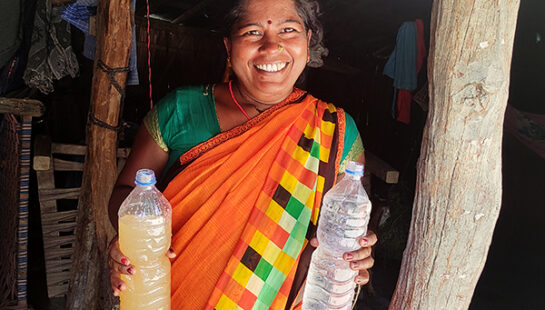If you’ve been to the supermarket lately and bought a carton of milk or your favourite cereal, you’ll have felt the sting of inflation.
All around the world, families are squeezing their budgets to cope with the rising cost of living. Some countries, though, are feeling the pressure far more than others. And in places like Lebanon, inflation is driving whole communities deep into poverty.
Over the last three years, the price of eggs in Lebanon has increased by 3,000 per cent, and a bunch of bananas has risen by 1,000 per cent. In Australia, this would mean that a carton of eggs that used to cost five dollars now costs $150. Something as simple as a fattoush salad, a dish served throughout the month of Ramadan, is now unaffordable for most people in Lebanon. Inflation has catapulted families into food insecurity, and it’s getting increasingly harder to survive.
Just How Bad Is Inflation In Lebanon?
In March this year, Lebanon’s annual inflation rate reached 264 per cent (to compare, Australia’s annual inflation rate in the same period was 7 per cent). The IMF has warned that the country is heading towards hyperinflation—a situation where there are rapid, excessive, and unmanageable price increases for goods and services in an economy. And the World Bank has described Lebanon’s economic collapse as one of the worst financial crises since the mid-19th century.
So Why Is It Happening?
The situation is complex. Lebanon’s economic collapse started in 2019, after years of political corruption, astronomical public debt, and financial mismanagement. Over the next three years, world events worsened the crisis—as it did for many countries around the world. COVID lockdowns disrupted supply chains globally, while the war in Ukraine halted the export of grain and fuel around the world. Lebanon imports nearly 80 per cent of its wheat—mostly from Ukraine and Russia—so limited supply drove up prices.
Before the economic crisis, the average worker in Lebanon earned the equivalent of just over $1,500 USD. Today, that same worker only earns the equivalent of $150 USD.
Lebanon’s currency has also lost more than 90 per cent of its value since 2019. Before the economic crisis, the average worker in Lebanon earned the equivalent of just over $1,500 USD. Today, that same worker only earns the equivalent of $150 USD. In many cities and towns, supermarkets no longer display the price of goods because the fluctuating currency means sellers don’t know what the price will be, from one day to the next.
What About The Rest Of The World?
Lebanon isn’t the only country where inflation is driving people deep into poverty. In countries already facing instability, high levels of public debt and currency devaluation have pushed inflation rates even higher. According to the World Food Program, five countries across the Middle East and North Africa—Lebanon, Syria, Iran, Türkiye and Egypt—have seen food inflation go beyond 60 per cent.
Inflation also has a greater impact on lower-income households, as most of their income is spent on necessities, making those families more susceptible to price increases. In many of the countries where our Partner organisations serve, inflation has left people unable to afford the basics, and families are struggling to put food on the table.
What Can We Do?
In countries where inflation is creating and deepening poverty, our Christian Partner organisations are responding by assisting people with their immediate needs—food, shelter and warmth—and helping them address the underlying causes of poverty, like access to education, attaining citizenship, and secure employment.
We invite you to help them continue their work through our Matching Grant appeal. Your tax-deductible donation today will be combined with funding from the Australian Government through the Australian NGO Cooperation Program (ANCP). When you give to Matching Grant, you’re helping our Christian partners around the world as they support people emerging from poverty.



 Heather Keith,
Heather Keith,
